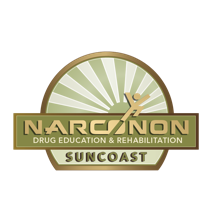The Journey of Recovery

If there is one thing I have learned about recovery from my own experiences, it is that it is most certainly a journey. What I love about recovery is that I am constantly evolving as a clean and sober man and that there are many different phases to each person’s own recovery journey. Like with anything in life, there are ups and downs, highs and lows, and challenges and adversity that are met with rewards and fulfillment when overcome. I do believe that as we continue to evolve and learn more about ourselves, including better ways of doing things, that it becomes easier to stay the course and enjoy being drug-free. That does not mean, however, that the pursuit to be the best version of ourselves ever stops, nor does the need to continue to work on our personal growth as individuals.
The first phase of recovery is, in my opinion, universal for everyone; the need to accept and ask for help when addiction has taken over a person’s life. Too often, people stay stuck in addiction out of an unwillingness to reach out for help or accept the fact they have a problem and need the help. There are many reasons an addict will use to defer getting help. I think for a lot of people, whether they want to admit it or not, they do not want to confront a life without drugs or alcohol. Despite the misery that substance abuse creates, it is still a comfort zone for most, even as strange as that sounds to an outsider looking on. Another reason is simply pride, and you can count me as one of those people. The need to do it on our own, on our terms. Whether it be trying to detox ourselves at home, knowing full well the end result of using as soon as we feel well enough to move, or the empty promises of doing it tomorrow, next week, or next month, a lot of folks fall victim to this mindset when the reality is reaching out and accepting help is the most courageous thing an addict can do for themselves. It takes guts to admit we have a problem that we need help to solve and that we cannot do on our own. But that is where the journey begins for nearly all of us.
The next phase is, of course, the receiving end of getting help: going to treatment, finding support groups, whatever it may be for an individual. The people that make it are the ones that don’t just go through the motions during this time—they give it their all. They put real effort into making one of the toughest lifestyle changes a person can make. They dedicate themselves to becoming a better person to themselves, to the people they care about, and to the world around them. That time they are in treatment, accepting help can be the most impactful time of their lives if used in the right way.

The next phase is what I like to call the most critical time in a person’s recovery. We have asked for and accepted help. We have gone to treatment and dedicated ourselves to making lasting changes. We have developed a plan that involves a lot of commitment and sacrifice to a new way of life. We have the tools, now we set the tone on which path we will go down. Do we stay committed? Do we utilize the tools we now have at our disposal to instill the changes we have committed to making? This is the time where our life is at a crossroads. One path leads to the life we desired when we accepted help. The other path leads back to the place we so desperately wanted to get out of before asking for help. If we go down the path that continues our recovery journey, there will be challenges and adversity that will make us stronger as we overcome them. There will also be joy and peace, with hopefully a lot of improved relationships along the way as we put into action our ability to be rid of addiction, for good. We know where the other path leads, and that is why this phase is, in my opinion, the one that sets the tone for a person’s recovery journey.
Once we get past the crucial phase of early recovery and have settled into this new way of living, the next phase often sees the fruits of our labor. There was a lot of excitement in this phase of my own recovery. I started earning back the respect of my family and loved ones, as they could see that I was living a life far different than the one I had been living as an addict. I didn’t preach the changes, I just let them see them, and that was enough. This is also the phase in my recovery where I started feeling good about myself, about the decisions I was making, the work I was putting in, and simply the way I was living. Challenges and adversity still arose, but they felt different. They were more manageable and, in turn, less stressful. I began to realize that I was embracing my drug-free life and that the internal struggle I had felt for so many years was no longer a part of me.
Long-term recovery comes next, and there is perhaps no greater feeling for a person who battled addiction for years. I am a big believer that overcoming my addiction has made me a far stronger person than I ever would have been if I had not gone through that period of my life. This strength has given me the ability to continue working on myself in all areas of my life, as the areas I needed to improve on coming out of addiction are no longer a part of who I am. There are always ways to improve our lives, however, and people that get to this point in recovery often have a sense of gratitude that inspires them to continue to do good with their life.
While these observations are from my own personal experiences as well as other recovery journeys that I have had the privilege to witness, I feel it is important to point out that everyone has their own set of circumstances. There is no set timetable on anyone’s own recovery journey and how quickly they reach certain points. I do want to go back to the beginning, however. If you are reading this and struggling, remember the first phase in anyone’s recovery journey is asking for and accepting help, and your journey can start at any time you’d like.


